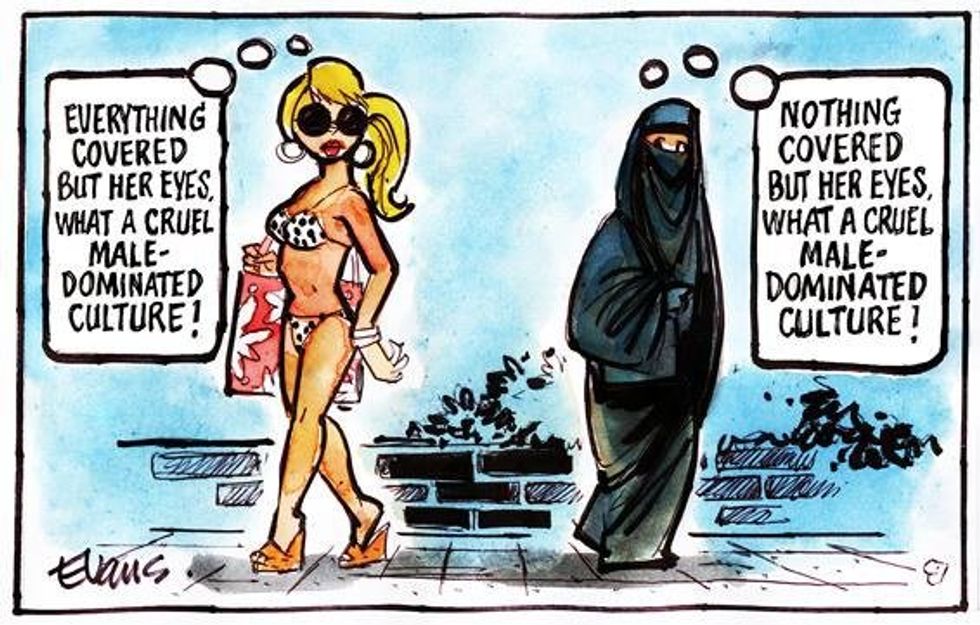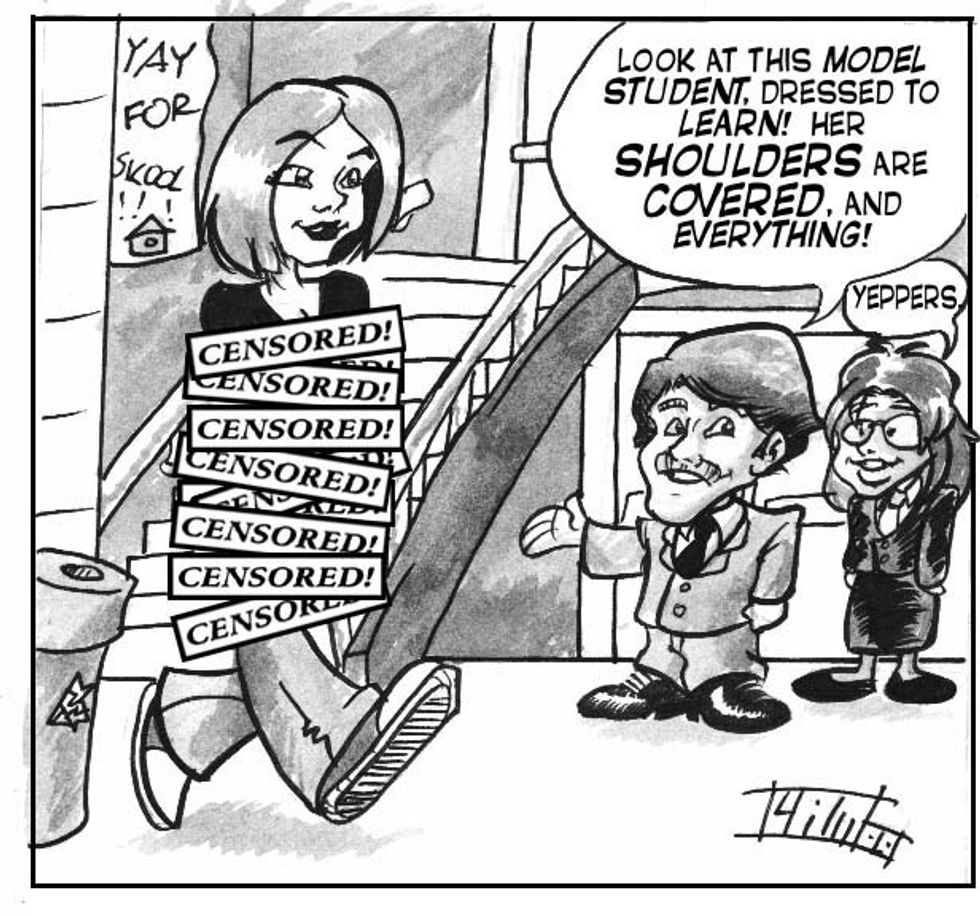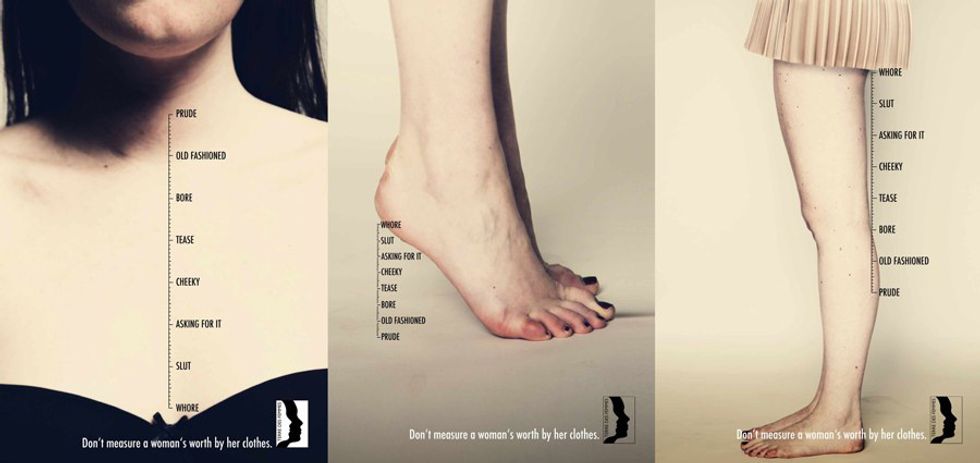It's a sickening norm that women's way of dressing is constantly under intense public scrutiny thanks to the probing eyes of social media. Even seemingly benign comments about which clothes are fitting and suitable can harbor judgment about what women should and should not wear. But that's only the mild side.
The media hyper-sexualizes women for profit and implies that only skinny girls can look good in certain clothes. These toxic messages continuously promote the ideas that women's bodies are inherently sexual and that their foremost value lies in their appearance.
How can we reverse these trends so that girls can grow up with more self-acceptance and self-confidence?
Dress Codes and Self-Respect*
We are conditioned to accept biased standards of dressing because they're embedded in our education system. Many schools, instead of requiring uniforms, impose strict dress codes that primarily restrict women's right to dress freely. They tell us we cannot wear short shorts or tank tops because our legs and shoulders can "distract" the boys. While I understand that there is a desire to maintain a level of professionalism in a learning environment, too harsh rules and constant policing send the message that women's bodies are objects to the tamed.
Critics say that they have to draw a line somewhere and it is the school authorities' rights to set their own standards. And it is true that it is the institution's right and duty to create an environment suitable for learning. But when dress code violation is one of the top reasons that students get detention, we have to reexamine if such standards are effective in unifying the students body and minimizing conflict.
Far from telling students to respect themselves and others, these restrictive standards make the female students responsible for earning the respect of their male counterparts by dressing to avoid attention and make their bodies the perpetrators of bringing conflicts on campus. Our bodies become objects to be contained. Self-expression becomes a nasty excuse for disrupting campus safety.
Instead of telling girls what they can and cannot wear like a broken record, schools should teach students about what is to respect themselves and others to reduce physical harassment. Instead of making students' way of dressing a behavior to be criticized, schools should promote healthy messages of body positivity to reduce verbal harassment. Most important, schools should strive to be an institution to protect rather than to punish.
Slut-Shaming
What a slut. It's a sentence uttered by men and women alike to make women feel ashamed of their bodies. "Sluttiness" is used as a reason for being harassed, raped, and mocked in public. We all hear about people slut-shaming women for dressing too provocatively. We are accused of taking our freedom of expression to the extreme that we make the public feel uneasy about looking at us.
But is a slut really a person who dresses skimpily to get attention? Is sexual intention necessary to be called one? The exact definition doesn't matter, because the term is a way that people project their contempt and insecurities on others. It's a way of telling the person that we are uncomfortable, disgusted, or offended by how she dresses. Are we that uncomfortable about human bodies that we cannot bear the sight of some cleavage and midriffs?
The bottom line is, our clothing style is closely connected to our public image and our identity. It can be a way of artistic expression, an indicator of our career, and even a sign of advocacy. In other words, it is a balance between societal standards and personal preference, respect for our community and respect for ourselves. If a person chooses to dress in a fashion contrarily to what society expects, we shouldn't be quick to judge that the person is ignorant or an attention-whore. There is no way of completely understanding the complexity of another human being just by how a person dresses.
Hijabis
On the other "extreme" are women who dress modestly as a sign of modesty. Hijabs are the most talked-about article of clothing that denote such principle in the US and they are deeply rooted in these women's religious and/or cultural identity. Unfortunately, hijabs have been used to exclude women from workplace, such as when a Muslim woman was denied a job from Abercrombie & Fitch for her headscarf (thankfully, the Supreme Court subsequently ruled in her favor).
They have also been used to accuse women of self-oppression, in which women willingly comply to the male-dominated standard of modesty. The common assumption here is that these women are forced to dress conservatively to avoid the male-gaze and the risk of exclusion from their community.
The truth could not be farther from this assumption. But don't let me tell you what these women think and feel about their ways of dressing. Listen to the women themselves and how they view their choice to wear hijabs. Shuhrah Chowdhury, a student at New Jersey Institute of Technology, explains:
"As a hijabi, I don't really find anything oppressive about wearing the hjiab and covering up in general because clothing itself is a form of expression. What i wear depends on what's practical for me and in no way does my hijab stop me from dressing the way I do.
I do understand that some people may find it "oppressive" in the sense that there are limited options [compared] to western fashion, which [also tends to be] more revealing, and the summer does get a tad unbearable; however, cultural outfits and religious wear reflects the person's values and beliefs and it honestly shouldn't affect other people if they don't wear it."
We shouldn't let unfamiliarity translate into hostility. Rather, we should use it as an impetus to learn more about other people's backgrounds and put ourselves and our decisions in perspective, too. While we should try to be considerate of others, we shouldn't let others' judgments from doing what we think and feel are right for us.
It is not that certain clothes are not "right" for us. It is their derogatory opinions that don't belong.
*Note: I am speaking from my experiences in my high school, where girls were constantly shamed for wearing shorts that were "too short" or tops that revealed too much of their shoulders. After getting many rejections on modifying the dress code, students were able to get popular support, which you can read about in this petition.
























